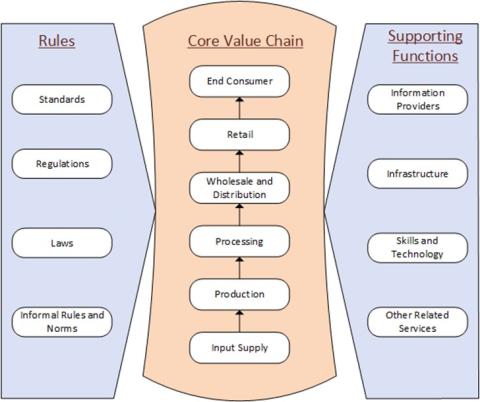A Different Approach to Economic Development
For the past 12 years, I have had the pleasure of implementing economic development programs in developing countries around the world using an approach called Market System Development (MSD). We’re now happy to bring this approach to New Hampshire, hoping to adapt it to support our communities.
MSD is a sector-focused approach, aiming to grow targeted industries by addressing the challenges that the industry is facing. Every sector faces challenges that limit overall growth, whether they range from a limited supply of qualified staff, to logistics, to international competition – and by working together in an evidence-based way we can help overcome these challenges.

The first step in the MSD approach is to gain a deep understanding of the market through the “Market Lens”. In my experience, industry stakeholders have an excellent understanding of the market as it pertains to them but may not understand others. For example, fruit processors often understand the rules and information services as it pertains to them, their suppliers, and clients, but may not have a deep understanding of the same for fruit tree nurseries. As economic development practitioners, our role is to put these pieces together to get the “birds’ eye view” of the industry.
With that understanding, the next step in the MSD approach is to identify the priority challenges that the sector faces and to work closely with sector stakeholders to address the challenges. One example of this might be if it’s found that a tourism industry faces a limited supply of staff with a specific set of skills, and as a result we can work together with education systems, government labor experts, as well as tourism businesses to address this lack.
The final, and arguably the most crucial, step in the MSD process is to monitor, measure, and adapt. Industries are constantly changing due to a variety of internal and external factors, and so it’s essential that we monitor these factors to make sure our activities are still relevant. We also need to make sure that our activities are having the desired impacts, and are indeed contributing to the sector’s growth. Based on this monitoring and measuring, we need to be prepared to adapt our activities at any point.
While the Market System approach was born in the world of international economic development, we at UNH Cooperative Extension believe that it has real relevance in New Hampshire. We look forward to sharing more as we begin using this new tool to support our New Hampshire industries and communities.